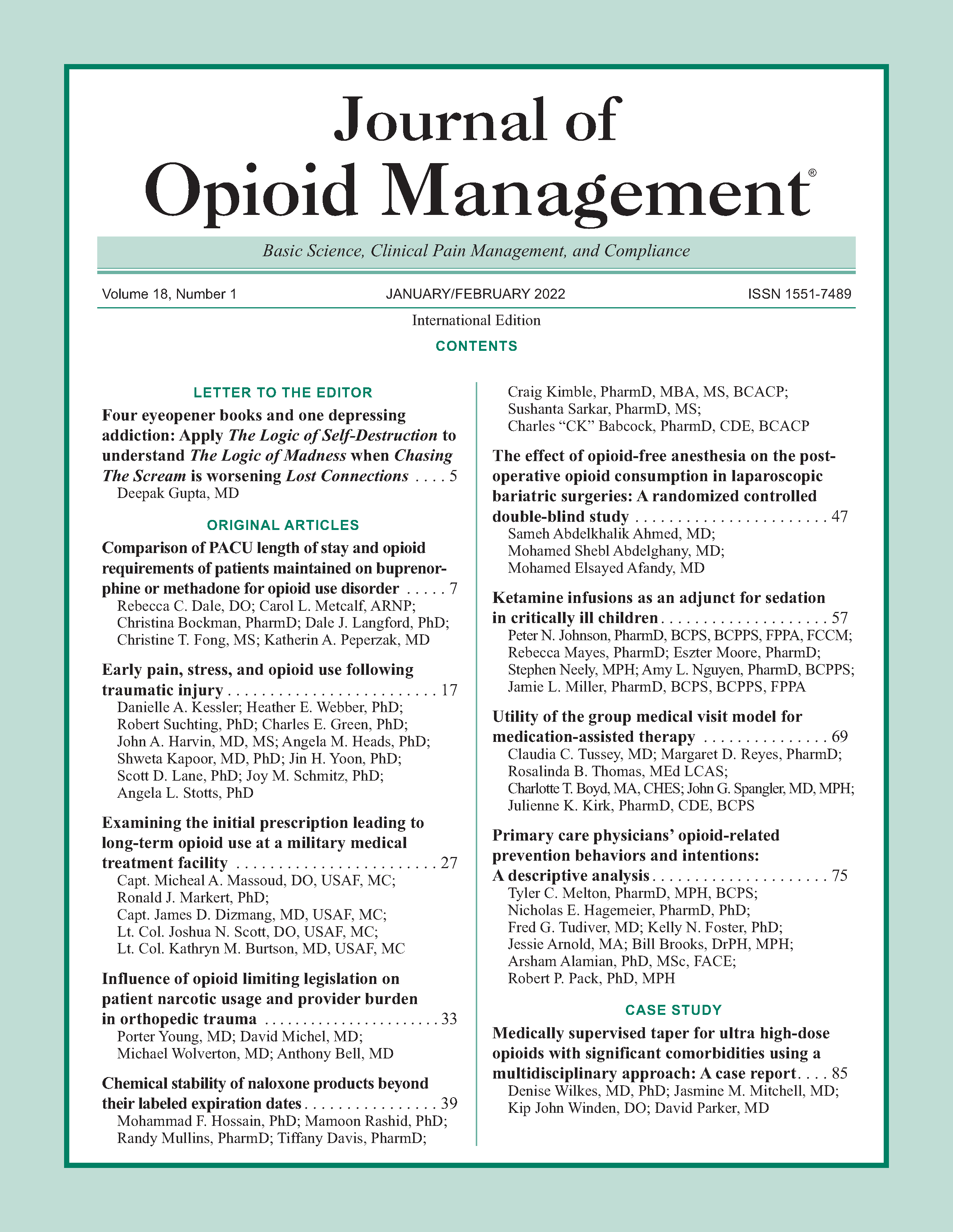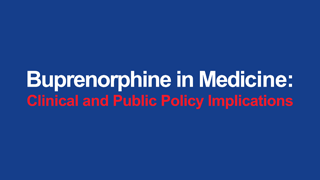Utility of the group medical visit model for medication-assisted therapy
DOI:
https://doi.org/10.5055/jom.2022.0696Keywords:
Medication assisted therapy, Suboxone (buprenorphine/naloxone), Group medical visitAbstract
Objective: To describe a group medical visit (GMV) model to facilitate medication assisted therapy.
Design: Retrospective cohort analysis.
Participants: Adult patients over 18 years of age desiring to receive medication assisted therapy (MAT).
Methods: We describe the MAT GMV model including the clinical flow and group facilitation processes. The key elements for documentation and the medical portion of the visit are discussed. Using descriptive methods, we report the characteristics of our patient population entailing demographics, co-occurring mental health diagnosis, and medication use.
Results: A total of 32 patients have participated in our MAT GMV over the past 2 years with nine active patients. Age range of participants is 20-65, with about half of them between 31 and 54; race and ethnicity have been primarily White (87 percent) with equal distribution of male and female patients. Most patients had one or more co-occurring mental health disorder. The majority of patients had a prescription of buprenorphinenaloxone 8-2 mg twice a day (62 percent). Many of our patients had repeated co-occurring illegal substance use on urine testing resulting in program dismissal.
Conclusions: MAT GMV is a straightforward and innovative way to deliver care to patients affected by opioid use disorder who are in a maintenance state. One of the biggest obstacles to successful participation in this program is repeated co-occurring illegal substance use. When remission is achieved via MAT GMV, provider efficiency is also increased and patients accomplish a sense of wellbeing via therapy, self-management, and medication assistance.
References
Center for Disease Control and Prevention: Opioid overdose. Available at https://www.cdc.gov/opioids/basics/epidemic.html. Accessed April 19, 2021.
Substance abuse and mental health services administration: Medication-assisted treatment. Available at www.samhsa.gov/medication-assisted-treatment. Accessed April 19, 2021.
Sokol R, Albanese M, Chew A, et al.: Building a group-based opioid treatment (GBOT) blueprint: A qualitative study delineating GBOT implementation. Addict Sci Clin Prac. 2019; 14(1): 14.
Kirk JK, Boyd CT, Spangler JG, et al.: Group medical visits: Experiences with patient and resident implementation. Expert Rev Endocrinol Metab. 2020; 15(1): 51-57.
Sokol R, Albanese C, Chaponis D, et al.: Why use group visits for opioid use disorder treatment in primary care? A patient-centered qualitative study. Subst Abus. 2018; 39(1): 52-58.
Kirk JK, Yount T, Boyd CT, et al.: Launching a medication assisted treatment (MAT) in an outpatient office-based practice. J Prim Care Community Health. 2020; 11: 215013272094072.
Centering Healthcare Institute Overview: Centering healthcare institute website. Available at https://www.centeringhealthcare.org/about. Accessed April 23, 2021.
National Institute on Drug Abuse, Advancing Addiction Science: Principles of Effective Treatment a Research-Based Guide. 3rd ed. Available at https://www.drugabuse.gov/publications/principles-drug-addiction-treatment-research-basedguide-third-edition/principles-effective-treatment. Accessed April 23, 2021.
Downloads
Published
How to Cite
Issue
Section
License
Copyright 2005-2025, Weston Medical Publishing, LLC and Journal of Opioid Management. All Rights Reserved.











